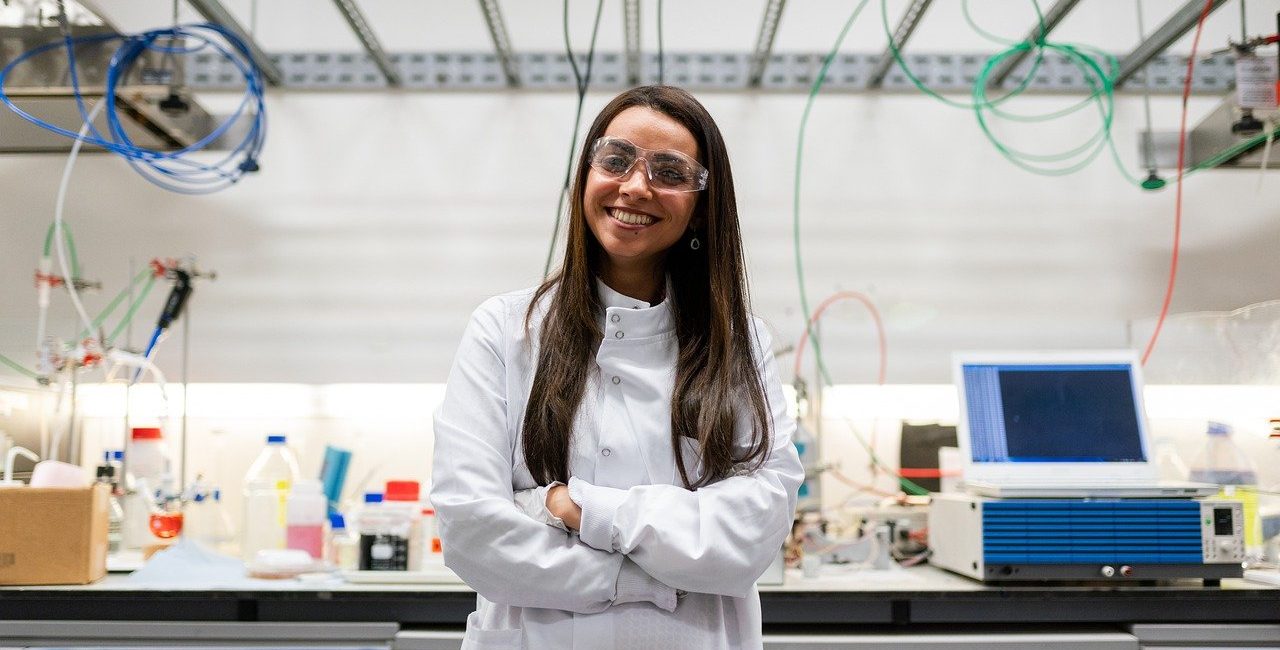
International statistics state that only two per cent of the maritime industry’s workforce are women. Meanwhile, just 21 per cent of engineers in the manufacturing industry are women. This is despite the fact that employment rates between men and women have little disparity in Europe. The EU records that 67 per cent of women aged between 20 and 64 are employed, while 78 per cent of men are employed.
The issue may be that the sector is perceived as uninviting. Any industry which looks like it excludes women, no matter the reality, will face difficulty in attracting female employees. However, this also means that many people are missing the opportunity to work in a diverse and crucial working environment. Businesses are missing female talent. This is troubling when considering the recruitment crisis in the engineering sector. Large recruitment gaps can be found across Europe, with high demand in countries such as the Netherlands. There, 13 per cent of all job vacancies are in engineering roles. Expanding the pool of potential candidates is vital for the sector’s growth.
More gender equality is needed for these industries. The best approach to achieving this is to promote the existing female role models. Exploring this topic, we spoke to Abi Thompson, Project Manager, and Georgia Jones, Senior Strategic Buyer, at subsea engineering specialist company SMD. SMD operates in Europe and across international borders. Abi and Georgia explain their roles, opportunities, and experiences within the sector, and why women are vital for its growth. This International Women’s Day, it is important to consider female contributions to engineering, and why more women should get involved with this lucrative career path.
Diverse roles
The roles of Abi and Georgia are varied and different. Abi describes project management as “the umbrella to the operation.” She elaborates: “We make sure the process is right and that there’s communication all the way through. We’re always asking questions, we’re always looking for results. If there’s a problem, where’s the fix?”
But Georgia’s role differs, identifying, sourcing, and onboarding suppliers and sourcing new products or technologies for SMD’s supply chain. For her, the key part of her role is “Managing high-risk, high-volume, high-value electrical commodities in the business across all projects and divisions.”
Collaboration is essential for both these roles, with both workers highly regarded and valued within SMD. According to Abi, “Project management is very hands-on. We’re always buzzing around the place and there’s a lot of interaction with the whole team. We oversee the whole process from the sales stage all the way through to delivery and the sea trials.”
Georgia collaborates with many internal and external figures. “I work really closely with the electrical engineering department looking at new solutions, whether that’s new tech or suppliers.”
Stepping up
Since joining SMD, both women have enjoyed a successful career progression. Georgia came into the business as an Electrical Buyer and worked her way up to Senior Strategic Buyer. Abi began her SMD career in a junior admin role, progressing to Associate Project Manager before eventually being appointed in a full Project Manager role.
Abi and Georgia joined SMD through different entry points. Following the completion of an admin apprenticeship after what she described as a career “lightbulb moment”, Abi saw the junior admin role advertised. Her father was a Group Production Manager, so she utilised her network to get the foot in the door. From that point, she says, “I worked my way up the ranks with hard graft.” Her career path is not one we hear about often due to how her education panned out. “I left school with no GCSEs. I’ve got nothing on paper, but now I’m a Project Manager and I smash it.
Herself dedication proves how meritocracy works within the engineering sector: “I didn’t know which way I wanted to go in my career, which I think most people don’t know at 16. I got into a good market at a good time, worked hard and proved myself in the business.” Thanks to SMD, Abi has now completed a foundation degree in Business Management and is currently studying a top-up degree – something she never thought she’d achieve. This is an inspiring message to any young women who haven’t taken traditional routes through education.
Meanwhile, Georgia transferred her skills from working within the manufacturing sector. Maritime engineering was a dramatic shift in her career. “I’d just had a baby and was looking for something new. I’d been in purchasing supply chain for years, and the advert was out there at the right time. This was completely different – what SMD does is completely different in general.” But Georgia’s vast experience in the supply chain meant she was able to hit the ground running in this new, exciting sector.
The variety of experiences within the sector highlights the transferability of skills, and how the sector welcomes diverse talent. Utilising a network can be beneficial to getting your foot in the door and rising through the ranks to prove yourself. Equally, Georgia proves that you don’t need to be in the same sector your whole career to add value to a business.
Rewards of the sector
Although Abi and Georgia have different roles, their experiences are highlighted by similar rewards. According to Georgia, “The obvious area for me is when you get to the end of a project, you look back and see the cost-savings in your area for the commodity.”
Abi also believes that completing a project is rewarding. “For me, it’s when you see the product go into production and everything comes together. All the work you’ve put in at the front end starts paying off. The materials are right, parts are right, it’s slotting together, and you start seeing something being built.”
Curating a positive relationship is also beneficial to Georgia. She says: “Finding a new supplier and working with them from the tender all the way through to approved status, developing a relationship, and seeing them integrated into SMD as a valued member of the supply chain is really rewarding.”
Advising the next generation of women
Georgia and Abi agree that sometimes they find themselves in rooms dominated by men. So, how do they cope with that? According to Georgia, “I was told to not be afraid to speak up and get your opinion across. Engineering is male-dominated and you’re quite often the only female in a room full of men. Don’t be afraid to put your opinions across and challenge other people’s views. You’ll also have your views challenged, so you can provide a good argument for them.”
Abi believes that SMD has fostered a supportive working environment, allowing her to progress in her career. She’s also supported as a mother of a young child who is juggling higher learning. She comments: “I’ve got my daughter, assignments to write, and projects to kick off, and the SMD team is so good about it. One day, when I was struggling, my manager told me I’d be able to do my hours whenever I could, giving me some important flexibility.”
As proven by the success of these women, there are a variety of ways that you can succeed in a male-orientated sector, even in maritime and engineering. Abi left school without GCSEs but, by utilising her network and working incredibly hard once she’d secured a role, she has risen through the ranks into a highly demanding role, as well as taking on an apprenticeship and a degree. Georgia used her vast experience in multiple stages of the supply chain to adapt to her role in a new environment. Her advice is important: in a male-dominated industry, don’t be afraid to speak your mind. And don’t be afraid to enter a brand-new industry. In order to achieve gender equality in these industries, we need more trailblazers like Abi and Georgia.
Sources
https://ec.europa.eu/eurostat/web/products-eurostat-news/-/EDN-20200306-1
https://ec.europa.eu/eurostat/web/products-eurostat-news/-/edn-20210210-1
https://agilesearch.io/blog/recruiting-our-way-through-workforce-crisis-in-europe/
https://www.imo.org/en/OurWork/TechnicalCooperation/Pages/WomenInMaritime.aspx
https://wearetechwomen.com/women-in-engineering-how-can-we-make-the-sector-more-inclusive/












